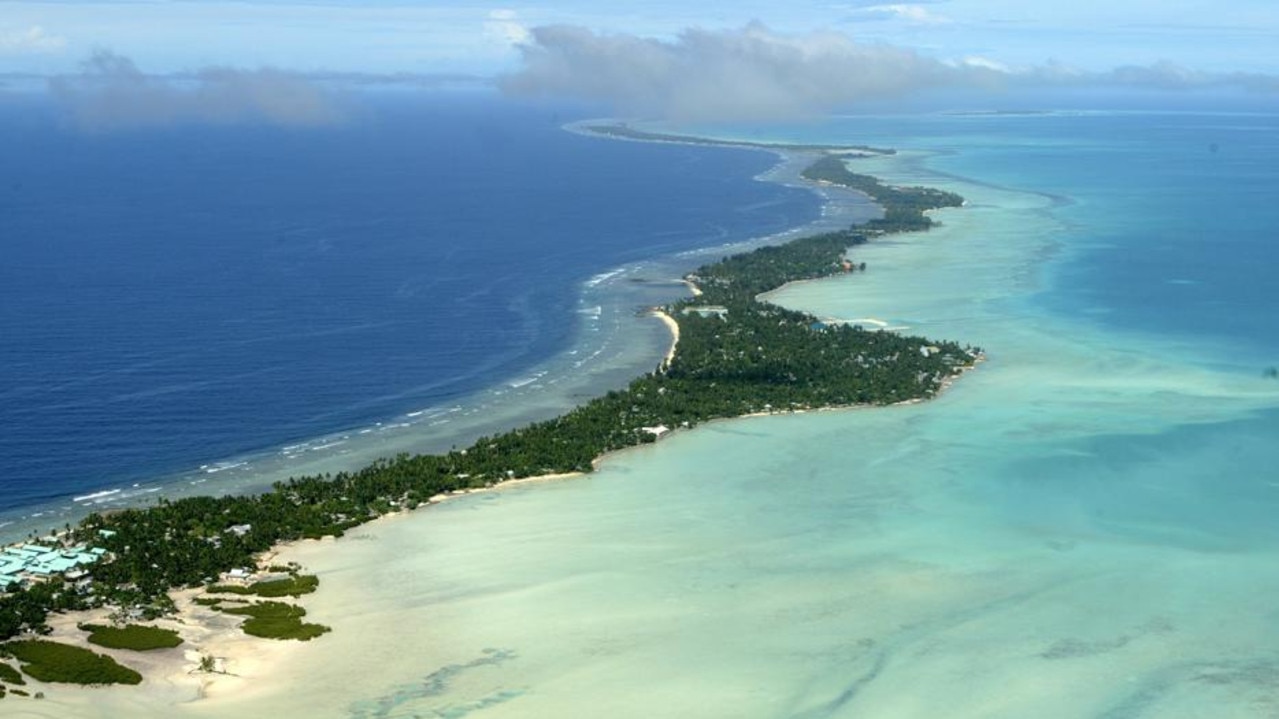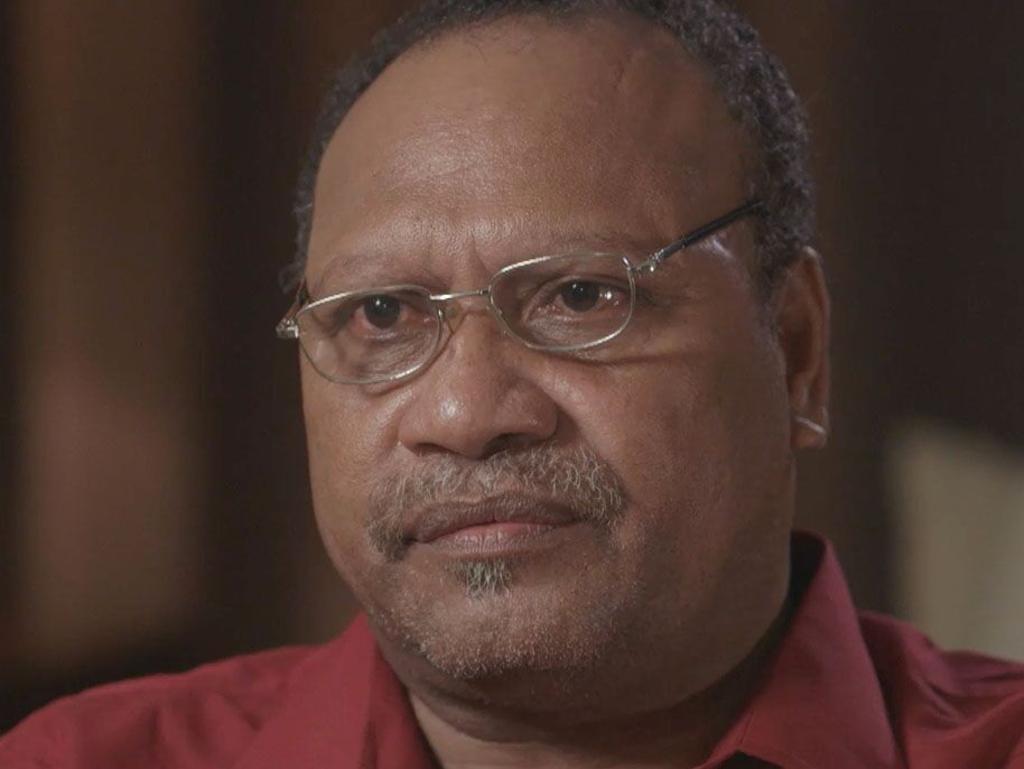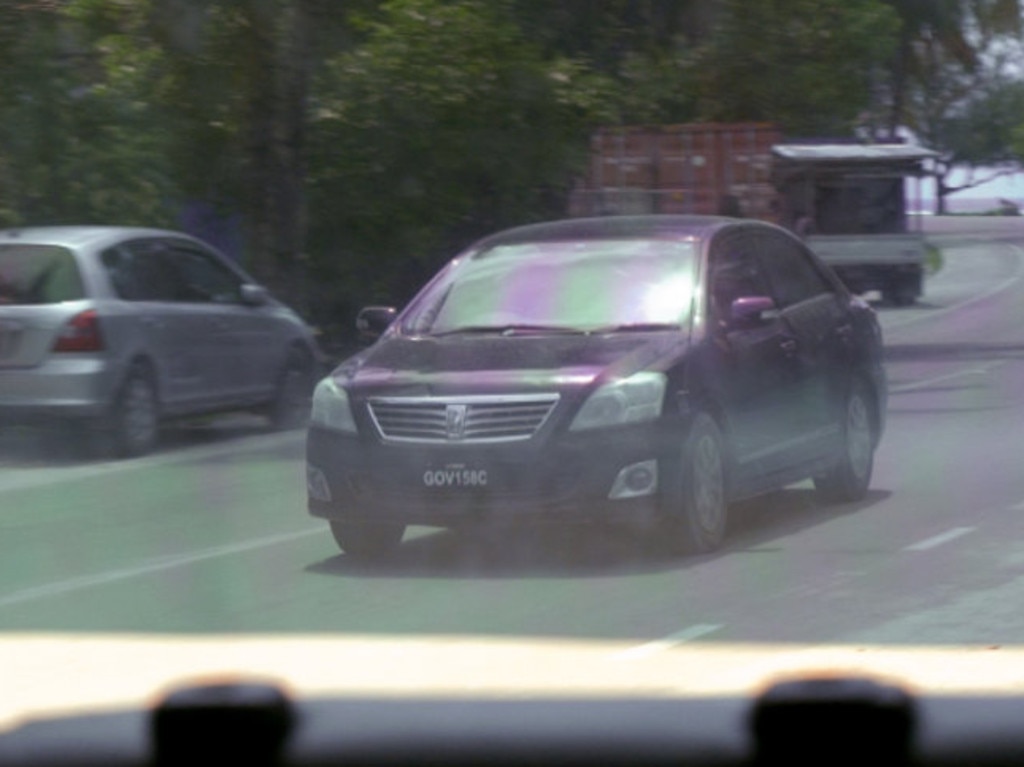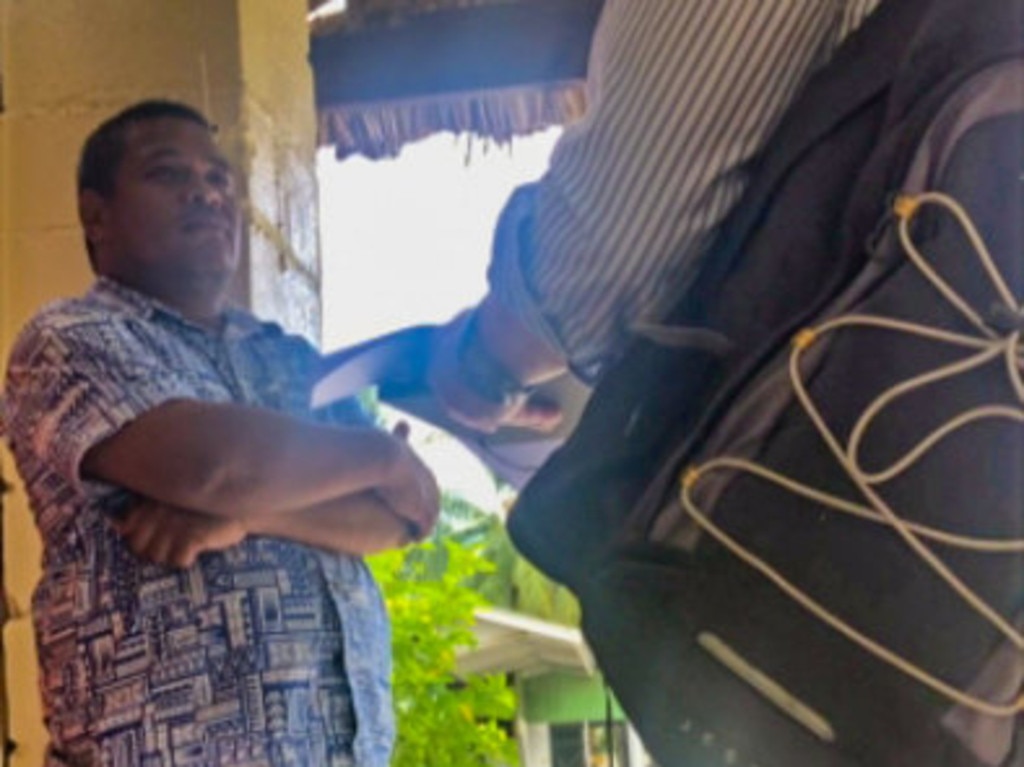60 Minutes investigates China’s growing influence in the South Pacific
China is on the move in the Pacific and the communist country has already begun a slow invasion of Australia’s neighbouring islands.
It’s undeniable that China’s influence around the world is increasing at a rapid rate and now countries just a stone’s throw away from our own are being taken over.
When you think about Australia’s island neighbours in the South Pacific, the first thing that come to mind are probably the relaxed atmosphere and pristine beaches.
But behind the scenes of these island paradises, China’s influence is growing and more and more nations are being convinced to switch their allegiance.
An investigation by Nine’s 60 Minutes shows how the communist country is using large amounts of cash to buy control in nearby island nations like Vanuatu, Kiribati, and the Solomon Islands.
China has long demanded that no country it has diplomatic allegiances with can recognise Taiwan, with the Solomon Islands and Kiribati becoming the latest Pacific nations to switch their allegiance to China.

Former intelligence chief of the US Navy’s Pacific Fleet, Captain Jim Fanell, told Nine’s Liam Bartlett that China’s interest in the area could have future impacts on Australia.
“They’re interested in this area because it’s essentially the lifeline or the choke point between America and Australia and New Zealand,” he said.
“China has built the navy that people said they were never going to build. China has deployed their fleet to places they said they were never going to deploy and they’re sending their fleets around the world.
“They believe that they’re supposed to be the rightful leaders of this new global order. The British century, the American century, now we’re going to have the Chinese century. That’s their vision.”

When Prime Minister of the Solomon Islands, Manasseh Sogavare, announced in September the country would be switching allegiance from Taiwan to China it set off alarm bells for many people.
Premier of the Solomons’ largest island Malaita, Daniel Suidani, revealed to the program that he was offered $1 million (A$178,300) to accept the change of allegiance to China.
And it appears Mr Suidani may not have been the only politician allegedly offered a bribe, with him confirming he believes there are a “lot of corrupt politicians” in his government.
Another tactic China has used to quietly expand its power in the South Pacific was by having companies with close links to Beijing try to take out a 75-year lease on the Solomon Island of Tulagi.
The deal would allow the communist country authority rights to the island’s deep water port, oil, gas, fishing, forestry and tourism.

The lease document, which was obtained by 60 Minutes, shows it was signed by Tulagi’s provincial leader, who reportedly hasn’t been on the island since.
That one signature was almost enough for China to secretly gain full control over the tiny island.
However, when the document became public it was ruled unlawful and the lease was not granted.
Though the plan for a 75-year lease was unsuccessful, another of China’s plans was recently executed.
A $825 million deal was struck to allow China to redevelop the Solomon Islands’ Gold Ridge mine.
Chinese ambassador Xue Bing, described the deal as an “early harvest”.
Along with the profits from the mine, all port facilities, roads, rail and bridges built to service it will also remain in China’s control.
CREW DETAINED IN KIRIBATI
The 60 Minutes crew received a sinister welcome when they arrived in the pacific island nation of Kiribati to continue their investigation.
The country is one of the nations who have made the switch from Taiwan to China.
The tiny island nation also cracked down on media visas last year after 95 people died in a ferry accident.
Ahead of arriving, the team attempted to obtain a “filming permit” that would allow them to shoot the program in the country.
They were told they could obtain the permit if they paid a $3000 fee in cash.
On top of the fee, they would also have to agree to allowing the government to censor everything they recorded and “to retract the contents that contradict and are not aligned with the current Government’s policies and priorities”, The Sydney Morning Herald revealed.

After realising the government would have complete rights to censor any of their reports they chose to not obtain the permit and flew to the country anyway.
Shortly after arriving in Kiribati, Liam Bartlett and the crew noticed they were being followed by a black government car.
When they arrived at their hotel government officials were waiting for them and they were immediately placed under house arrest.
“If you keep arguing with me, my instruction is to transfer you to a cell,” the official was captured telling a member of the crew.
“You have no rights in this country.”
Kiribati is very important to China’s plans in the Pacific and is likely the reason tensions surrounding foreign journalists are so high.
The ocean territory controlled by the small island is a crucial part of the “Blue economic passage” China wants to establish.

“It’s the start of a comprehensive plan that they have to dominate the region,” Captain Jim Fanell said.
“And at first it’s with economic development, but it will be followed by fishing fleets and maritime law enforcement and then eventually Naval forces.”
Mr Fanell believes the paranoia around media crews in the country is tied up with the alleged large amounts of money being brought in.
“Well, I think it’s pretty clear that there’s something to do with the kinds of money that’s being brought in,” he said.
“How that money is being distributed, obviously would be something that they would probably not want people to know about or hear about.”
Despite threats of imprisonment, the crew were eventually deported out of the country days later.




